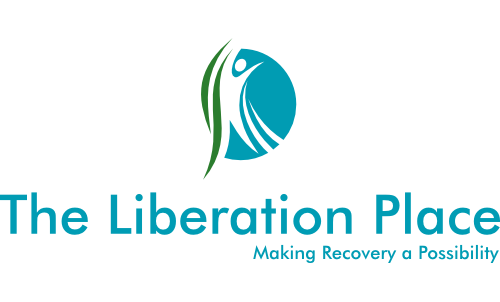IMPROVE The Moment
Regardless of weather the circumstances we’re facing may be considered by others to be small, or big, it’s not unusual for us to experience the feeling of disempowerment or a sense that we are lacking control over the uncomfortable and unpleasant event we find ourselves in. It’s important to remember that during these times we need our Distress Tolerance skills to make it through the situation without engaging in old unhealthy and ineffective behaviors.
Remember, intense emotions don't last forever. Without our own internal actions that keep them continuously going, they often only last for a mere minute or two. It’s during this time that we can use the skills available to us in Dialectical Behavior Therapy to help us to get through situations such that are stimulating these negative emotional experiences. In this PDF, we will go over the skill known as I.M.P.R.O.V.E The Moment to help us learn how to tolerate unpleasant emotional experiences until the level of intensity subsides.
“Remember, intense emotions don't last forever. Without our own internal actions that keep them continuously going, they often only last for a mere minute or two.”
~Steven Morris RP.
Learning to IMPROVE The Moment, gives us the skills we need to let an uncomfortable emotional experience pass us by, without reacting to it in a way that makes the external situation worse than it already is, or causing our emotional experience to intensify to a level of emotional distress that creates an ineffective behavioural coping mechanism that we don’t want to use. As with many of the skills in Dialectical Behaviour Therapy, IMPROVE continues the trend that follows the basic standards of mnemonics, as each letter is a prompt to take a behavioural action in a particular direction. As such, I.M.P.R.O.V.E stands for Imagery, Meaning, Prayer, Relaxation, One thing in one moment, Vacation, and Encouragement. The following is a brief description of what each aspect of this skill means.
Imagery
Take a time out from the situation that's causing the emotional distress, spend a period of time imagining yourself dealing successfully with the problem you are facing. In dialectical behavior therapy this involves being in a wise state of mind and would leave you feeling accomplished when the situation is over. When you take the time to picture the future in a positive way, you may actually be able to change the outcome of the problem in your favor.
Meaning
Often, we can struggle to find meaning in what we feel are emotionally painful situations, or maybe we can even attach meaning to things where there is none. However, try asking yourself, what can I learn from this experience? This may open up the possibility of being more empathetic towards ourselves and others. Maybe you'll build new relationships with people, or find yourself on a new journey, with a completely different direction. Try to find a reason, or a possible reason, to explain your present sense of suffering, and ask yourself if you are making something personal that may not be personal at all.
Prayer/Meditation
For those of you that find comfort in one of the many religions, or spiritual practices available to us, prayer can often be a rewarding, empowering, and comforting experience. Prayer can come in any form that works for you, and the prayer can be to any form of higher power you choose, including God or the universe. It can sometimes be empowering to surrender your problems to the higher power and asked to tolerate the situation a little longer. If prayer isn’t something that’s appealing to you, try practicing guided meditation instead.
“Maybe you'll build new relationships with people, or find yourself on a new journey, with a completely different direction.”
~Steven Morris RP.
Relaxation
Any human being will naturally tense up during emotionally stressful situations as a result of activating what’s known as our Fight or Flight instinct. This system is an innate, primal response to fear, so knowing how to disengage it is an important skill to have. The TIPP skill will help us with this disengagement in the moment, but there are many things we can do to increase our window of tolerance that will make it harder to enter this primal state in the first place. When we engage in relaxing activities it can calm the physiological distress we are experiencing. These activities can include, but are not restricted to, deep breathing, yoga, tapping, acupuncture, taking a hot bath, or going on a mindful and relaxing walk. Remember, activating our senses in times of emotional overwhelm can often disengage the activation of the Fight or Flight reaction we are currently experiencing.
One thing in one moment:
Staying in the moment is something many people strive to do, but often struggle with in practice. Letting go of the past, along with the possibilities of the future, will increase our chances of reaching this goal. Adding old issues to a situation, or obsessively worrying about potential consequences of a future situation, will not be helpful in solving any problem. Breaking things down into small achievable tasks can often alleviate the sensation of overwhelming emotions attached to any situation we are struggling with. Find the one thing you can do, right now, in this moment, and focus your entire self to that task. Remember, being One Mindful, and creating what’s often referred to as a one-track mind, helps emotions feel less overwhelming.
Vacation:
For most people, when we find ourselves on the ideal vacation, we’re able to take a break from any emotionally overwhelming thoughts, and many, if not all of our stresses in life. This allows us to return home from our break ready to take on the challenges that we left behind. Unfortunately, most of us aren't able to take a real vacation during a moment of crisis. However, we can take a vacation in our mind.
When you are in a moment of emotional overwhelm, try to take a step back and imagine yourself somewhere else. This can be as simple as taking an evening stroll around the Lake or driving along a coastal highway. When you find this vacation in your mind, stay as long as necessary, and revisit as often as needed. Hopefully, you'll be able to return with more tolerance for your current circumstances. Remember, there is nothing wrong with distract and avoid, as long as it isn’t the only skill we use.
“When you are in a moment of emotional overwhelm, try to take a step back and imagine yourself somewhere else.”
~Steven Morris RP.
Encouragement:
In moments of emotionally overwhelming circumstances, one thing many people seek out is encouragement from others. However, this encouragement doesn't have to come from an external source in order to be effective. You can give yourself encouragement by repeating phrases, or positive affirmations, that are meaningful to you.
Simple statements such as “I got this”, or “I can improve this moment" can be effective in reducing the negative impact we are currently experiencing as a result of the emotionally overwhelming situation in front of us. repeating these phrases while looking at yourself in the mirror is an extremely effective skill to practice too. Say it loud and say it proud, you may find your ability to motivate yourself surprising, and even be amazed at the way you managed to make it through a challenging situation.
Putting the skill into practice:
All the skills found in the Dialectical Behaviour Therapy (DBT) model are designed to be used anywhere and anytime you need to tolerate a situation that you cannot change. This is the same for the distress tolerance technique found in I.M.P.R.O.V.E. The Moment. However, just like the other skills, it is important that you practice these techniques during minor situations when you are not feeling emotionally overwhelmed. This will allow you to develop an automatic way of practicing this skill, which will increase the chances of it coming to you naturally when bigger problems arise.
Download the PDF of this page
Follow us on Social Media





